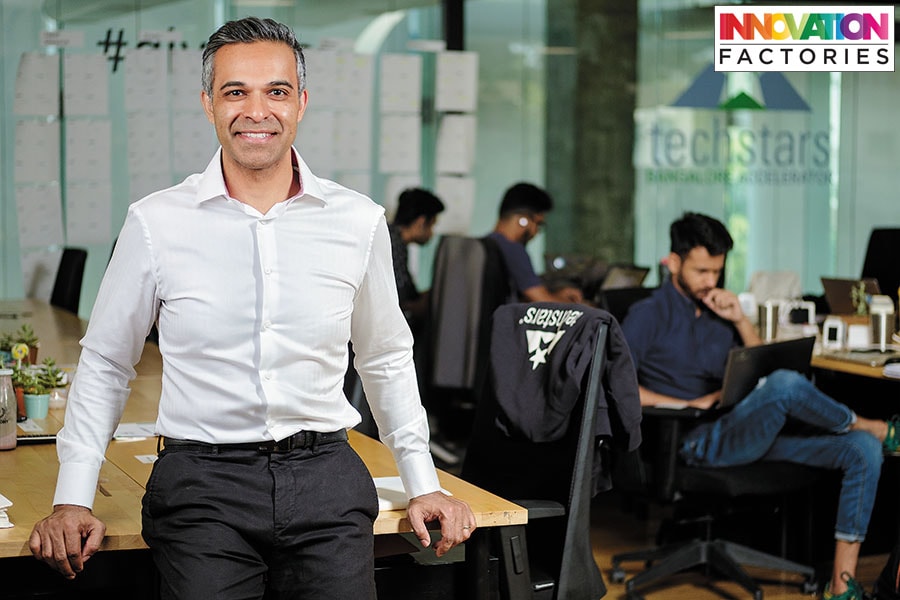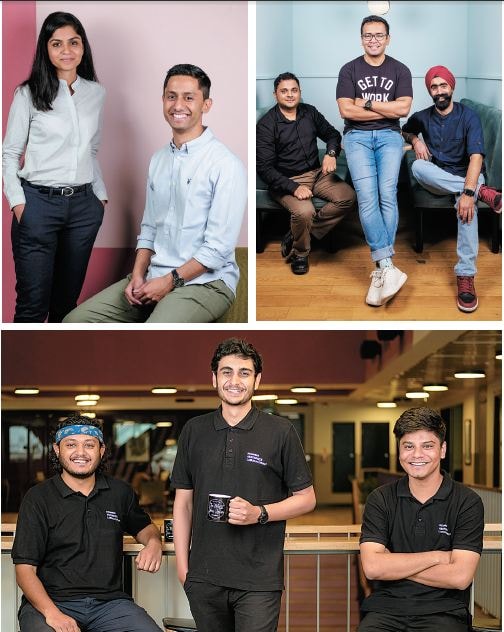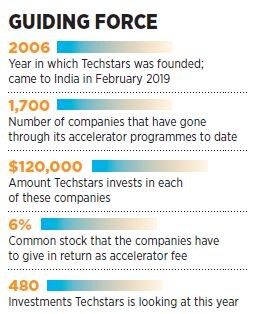
How Techstars matches mentors with startups
The accelerator programme, now in India, facilitates a stringent 13-week programme for entrepreneurs to deconstruct their business, and reconstruct where necessary
 Ray Newal, managing director of Techstars India, put together its accelerator’s first batch in India this year
Ray Newal, managing director of Techstars India, put together its accelerator’s first batch in India this yearImage: Nishant Ratnakar for Forbes India
Rohit Sen traded in London’s financial markets for over 12 years with the likes of Bank of America, Merrill Lynch and Goldman Sachs. Three years ago, he returned to India to build something that would give the youth, especially those with ambitions but little money, a head start. He teamed up with fellow Goldman Sachs worker Nupur Gupta to start Nira to give small loans to urban India’s low-income-earning youth. In 2019, it was among the 10 companies selected to be part of the first India programme of startup accelerator Techstars.
“We’re first-time entrepreneurs… there are a lot things that we are figuring out and making a lot of mistakes along the way,” says Sen, who holds degrees in economics and management from Oxford University and the London School of Economics. “Therefore, for us, the main attraction (of Techstars) was mentorship. These mentors are challenging us on why we are doing what we are doing and the really interesting meetings are when they ask us questions that we haven’t thought of.”
Sharing Wisdom
David Cohen, David Brown, Brad Feld and Jared Polis started Techstars in Boulder, Colorado, in 2006. They were part of an angel network and realised that the startups in the American city weren’t getting much out of angels except money. That’s when they, along with a few like-minded investors, decided to offer more. They had built and exited companies, and felt they could share their wisdom with other entrepreneurs. “That’s what we have to offer. No one really knows how to achieve success, but at least we can avoid making the same mistakes that each of us has made,” explains Ray Newal, managing director of Techstars India, which has its office at co-working space WeWork in Bengaluru.
Over a decade ago, the group in Boulder eventually evolved into an accelerator, offering a 13-week programme. Techstars has now had some 1,700 companies across the world that have taken its programme. Some prominent ones include PillPack, which sold for $1 billion to Amazon last year, SendGrid, which was acquired for $3 billion by Twilio this year, and cloud platform provider Digital Ocean.
The first few weeks of the programme is dedicated to what is called ‘Mentor Madness’, says Newal. The chosen startups cumulatively have 600-plus meetings with 50 to 100 mentors. “What we are hoping is that through the process of being open to weaknesses, we can deconstruct the business, take into account new things and reconstruct it so that it is a lot more robust,” says Sen.
Newal is excited about the first batch he has put together in the country. “I’m proud of the fact that we are running this accelerator in India. It’s hands-on and much more so than any other accelerator that has come into India,” he says. “It’s about giving them, through the 13-week programme, two years’ worth of growth. It’s rigorous for them and for me.”
(This story appears in the 30 November, -0001 issue of Forbes India. To visit our Archives, click here.)



 (Clockwise from top left) Nupur Gupta and Rohit Sen, co-founders of Nira; Ambee co-founders Madhusudhan Anand, Akshay Joshi and Jaideep Singh Bachher; Arunabha Bhattacharya, Anshul Sharma and Rishabh Gupta, co-founders of Redwing Aerospace Labs, were all part of Techstars’ first accelerator batch this year
(Clockwise from top left) Nupur Gupta and Rohit Sen, co-founders of Nira; Ambee co-founders Madhusudhan Anand, Akshay Joshi and Jaideep Singh Bachher; Arunabha Bhattacharya, Anshul Sharma and Rishabh Gupta, co-founders of Redwing Aerospace Labs, were all part of Techstars’ first accelerator batch this year




